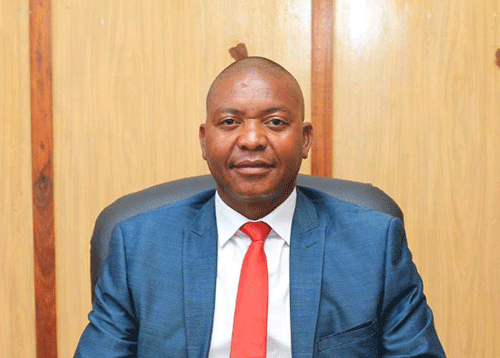Students often fondly recall the admirable qualities of their teachers. They remember teachers who cared about them, and those who were supportive or encouraging.
Nico Ndumba, a teacher at Mbambangandu Junior Primary School, wants to be remembered as a teacher who challenged students and made them think out of the box. Ndumba revealed this during an interview with New Era this week.
Mbambangandu Junior Primary School, 30km east of Rundu in Mashare Constituency, located in the Shambyu education circuit in the Kavango East region, has a population of 518 students and 14 teachers.
Apart from the usual teacher responsibilities, which are teaching, planning, classroom management, evaluation and assessment, Ndumba has also served on the school management committee for three years.
When asked why he chose a career in education, he said, “I have the love for children, which is compared to none. I must admit that working for the ministry of education as a teacher made me realise I missed my calling over the years. Today, I can proudly say my heart is at ease, and I finally found my last destination; this is my calling from God,” he said.
Working for government
Born and raised in Vikota village, 85km south of Rundu in the Kavango East region, Ndumba joined the public service in January 2017, shortly after obtaining his Honors Degree from the University of Namibia.
Asked whether it was his dream to work for the government, he does not shy away from the fact that working for the State comes with attractive perks that can be enticing for anyone.
“I decided to join the government due to its convenient working environment, benefits, health care, market-related remuneration, good policies and welfare of employees,” Ndumba admits.
The grade three teacher said he always wanted to work for the government, and he now has a chance to spend the biggest part of his life as a dedicated civil servant and continue doing what he loves most.
Challenges
But his job is not without challenges. He points out the lack of parental involvement in their children’s education as one of the main challenges the schools faced.
According to Ndumba, although there are parents who are supportive and eager to work with teachers to make sure their children get the best possible education, there are still some parents who do not understand the need and the importance of their involvement in their children’s education – both at home and school.
Achievements
When asked what excites him as part of the Mbambangandu Junior Primary School team, Ndumba was quick to acknowledge government’s efforts in creating a conducive environment, where teaching and learning flourish by putting up the basic necessities such as water and sanitation facilities.
He said, “Our school did not have an ablution facility when I joined the ministry of education but today I can proudly invite anyone to our school with confidence. We have knocked on doors to have what we have today at our school. A big thanks goes to my principal Laghia Nairenge for trusting the management team, together with the leadership of our regional education director Fanuel Kapapero for having our school on track with most needed infrastructure and accessories”.
On the public misconception about government employees being unproductive, Ndumba had this to say: “It’s a lie! It all depends on follow-up and feedback; if the supervisors don’t do what is right, any institution faces a catastrophe. Our daily planning should be priorities and being accountable for all planning is what matters. I go the extra mile to give feedback – even if it is not requested by my supervisors on time,” he maintained.
Be that as it may, Ndumba is planning to work as a public servant for a while and already has it that government will be his retirement home: “I prefer to serve as long as my service is needed –not for remuneration purposes only but I can also volunteer my services as well – even when I go on early retirement, which is to be announced at the right time – not on this platform.
“On my wish list, I want to have all our school age group kids in school without exceptions and increase the literacy rate in our beautiful country. It is also my wish to see all schools in Namibia, including inland schools like Vikota Junior Primary School, Tara-Tara Junior Primary School and Baramasoni Junior Primary School, benefitting from the feeding programme,” Ndumba concluded.


